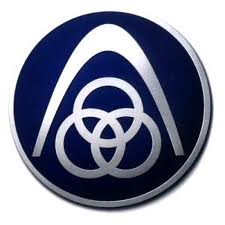 ThyssenKrupp Schulte is helping drive forward one of the world’s most significant scientific projects: the construction of the world’s biggest experimental nuclear fusion reactor ITER (International Thermonuclear Experimental Reactor).
ThyssenKrupp Schulte is helping drive forward one of the world’s most significant scientific projects: the construction of the world’s biggest experimental nuclear fusion reactor ITER (International Thermonuclear Experimental Reactor).
The experimental nuclear fusion reactor is a multi-billion euro joint project: Seven members of an international research initiative are directly involved in building the reactor in Saint-Paul-lès-Durance in southern France. The mega project is being funded by the European Union, China, India, Japan, Russia, South Korea and the USA. ITER is intended to provide information on the generation of energy from nuclear fusion.
Manufacture of a custom test rig
ThyssenKrupp Schulte has made a major contribution to the project: Its Munich branch designed a unique test rig to help gather information on the load capacity and mechanical stability of the moving supports for the ITER vacuum vessel. “The vacuum vessel, which weighs around 10,000 tons, is one of the most important components of the nuclear fusion reactor,” says Andreas Kellermann, manager of the Munich branch. To enable the vessel to expand during the fusion process and absorb the magnetic forces generated, it rests on nine moving steel supports which have to withstand a weight comparable with that of the Eiffel Tower.
The order was placed by KRP-Mechatec Engineering, the company responsible for the design of the test rig and the mechanical stability of the supports. Due to the highly complex nature of the test rig, the engineers requested ThyssenKrupp Schulte to manufacture the components on an individual basis. The selected material had to display high tensile strength and toughness. ThyssenKrupp Schulte advised its customer on the feasibility of each process step, in particular with regard to manufacturing tolerances. In addition, the materials experts made corrections to the engineering drawings based on their own measurements, and in cross-border collaboration with ThyssenKrupp Materials Austria were able to support all process steps.
More than nine tons of heat-treated steel was eventually used. The rig, measuring 2,265 x 2,125 x 1,400 millimeters, resembles a gigantic vice. The support mock-up developed by KRP-Mechatec Engineering was clamped in the structure and tested for stability using hydraulic equipment. This resulted in a custom design in line with individual requirements. “The challenge for us as service provider lay in providing tailored advice,” says sales staff member Diana Löhr: “Our expertise helped us find the ideal solution for all our customer’s requirements.”
Test passed
Finally, stability of the support was tested in the finished test rig at Munich University of Technology. Strain gauges were used to monitor the rig during three days of load testing and to test the mobility of the cylinder bearings. The results were impressive: The support passed the test. The findings will feed into the construction of the nuclear fusion reactor.
With its products and services, Essen-based ThyssenKrupp Schulte GmbH is Germany’s leading stockholding distributor. Its extensive range includes rolled steel, stainless steel, steel specialties and nonferrous metals. ThyssenKrupp Schulte supplies these materials in the form of flat products, profiles or tubes either ex-stock or custom fabricated. The company also provides extensive services from made-to-measure materials to just-in-time delivery and supply chain management, which it develops continuously in collaboration with its customers. ThyssenKrupp Schulte has more than 30 branch offices throughout Germany. As a subsidiary of ThyssenKrupp Materials International GmbH it is also part of a close-knit network of 250 bases spanning Europe, Asia, the Middle East and the Americas.
